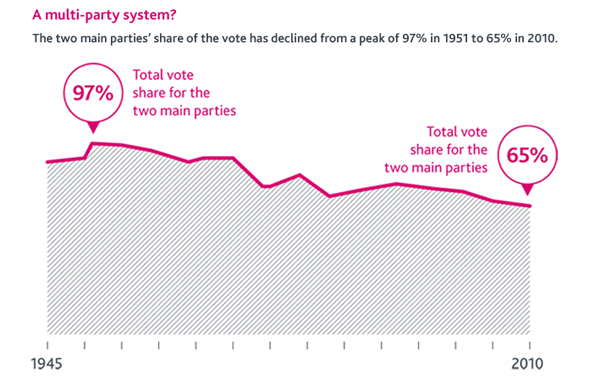The laws of effective coalitions
Now that we face the very real prospect of a hung parliament, this advice may be needed more than ever.
As an instrumental figure in the 2010 Lib Dem/Tory negotiations, it is hard to find someone better placed to give advice on effective coalition formation than David Laws. Now that we face the very real prospect of a hung parliament, this advice may be needed more than ever. As part of the Institute’s series of events to debate the ideas in our Programme for Effective Government, he gave a speech here last night outlining his reflections on more effective government in 2015 and beyond.
